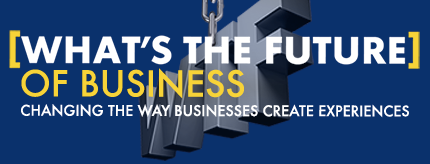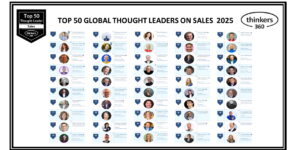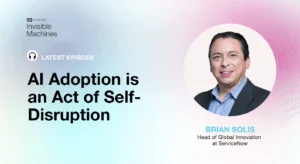Digital Darwinism is forcing businesses to #AdaptorDie. Many realize that customers are different. At the same time, leaders understand that how employees want to work is also changing. Yet, they’re frozen in the past, undermining the future simply because they do not know what to do and how. After all that is known, it is the unknown and the fear of venturing into the unfamiliar that becomes paralyzing.
I spend a substantial amount of time inside businesses researching digital transformation and also what prevents and accelerates it. Among the greatest catalysts for change is that customer behavior and values are so radically different from current norms and models that simply solving for “what digital customers would do” reveals your priorities and next steps.
This video was shot while I was on tour in Paris and London promoting What’s the Future of Business (WTF): Changing the Way Businesses Create Experiences. In it, I share the value of experiences and how to design them to be meaningful and shareable.
I hope this helps you…
You can view pictures from the event via Benjamin Ellis at Flickr.
Thank you to Martin Soler of wihp (World Independent Hotels Promotion), Phil Butler of Pamil Visions and Gabriel Laine-Peters for their help in organizing this event. Also thank you to Andrew Ellis of Like Minds for producing this video.
Connect with me… Twitter | LinkedIn | Facebook | Youtube | Instagram | Pinterest







In a digital world where technologies are changing stakeholder expectations and behaviours, communications practices need to evolve. In this era where change is inevitable the term ‘Digital Darwinism’ is becoming more and more relevant.
Given that convergent media is transforming audiences into empowered publics, people are giving more weight to the things that matters most to them. Since, publics are becoming increasingly selective; brands need to adapt to their behaviours and create meaningful experiences to them to make them engage with their product. For instance Mercedes created a whole experience around their cars, not just as a means of transport but an experience of luxury and power.
People still value shared experiences; and convergent media is facilitating the exchange of these experiences making them more relevant. As Kent (as cited in Heath 2010) stated “the current technology offers nothing genuinely new, only a new way to accomplish an old task”
(p.644). However communications professionals must venture and explore these new ways to remain relevant to their publics.
Thank you Silvan!